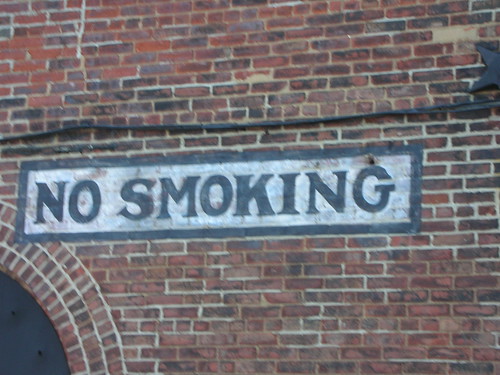
{David Garrick as Hamlet}
In the weeks leading up to Hallowe'en, when I was writing daily about ghosts and spirits, I spent a few days on Shakespearean ghosts, including that of Hamlet's father. If only I'd read Tom Jones a couple of months earlier, I could have adduced a scene from it as evidence of just how scary Hamlet's father's ghost can be--for said ghost makes a memorable appearance in one of Tom Jones's most entertaining digressions, a trip to the theatre by Tom and his well-meaning buffoon of a servant, Partridge; that the scene also gives us a glimpse of David Garrick--whom Partridge refers to as "that little Man "--in action as Hamlet is an extra bonus:
As soon as the Play, which was Hamlet Prince of Denmark, began, Partridge was all Attention, nor did he break Silence till the Entrance of the Ghost; upon which he asked Jones, "What man that was in the strange Dress; something," said he," like what I have seen in a Picture. Sure it is not Armour, is it?" Jones answered, "That is the Ghost." To which Partridge replied, "Persuade me to that, Sir, if you can. Though I can't say I ever actually saw a Ghost in my life, yet I am certain I should know one, if I saw him, better than that comes to. No, no, Sir, Ghosts don't appear in such Dresses as that, neither."Enter Garrick, and Partridge's doubts take wing, replaced by assailing fears that lead to knocking knees and trembling limbs:
"O la! Sir," said he, "I perceive now it is what you told me. I am not afraid of any Thing; for I know it is but a Play. And if it was really a Ghost, it could do one no Harm at such Distance, and in so much Company; any yet if I was frightened, I am not the only Person." "Why, who," cries Jones, "dost thou take to be such a Coward here besides thyself?" "Nay, you may call me Coward if you will; but if that little Man there upon the Stage is not frightned, I never saw any Man frightned in my Life. Ay, ay; go along with you!Later, Partridge graces us with a close--if naive--analysis of Garrick's technique:
[D]id you not yourself observe afterwards, when he found out it was his own Father's Spirit, and how he was murdered in the Garden, how his Fear forsook him by Degrees, and he was struck dumb with Sorrow, as it were, just as I should have been, had it been my own Case.Yet for all this, at the end of the play, when asked for his favorite player, Partridge forsakes Garrick, choosing instead the actor who had played Claudius, for which he is reproached by one of his companions:
"Indeed, Mr. Partridge," says Mrs. Miller, "you are not of the same Opinion with the Town, for they are all agreed, that Hamlet is acted by the best player who ever was on the Stage." "He the best Player!" cries Partridge, with a contemptuous Sneer. "Why I could act as well as he myself. I am sure if I had seen a Ghost, I should have looked in the very same Manner, and done just as he did. And then, to be sure, in that Scene, as you called it, between him and his Mother, where you told me he acted so fine, why, Lord help me, any Man, that is, any good Man, that had such a Mother, would have done exactly the same. I know you are only joking with me; but indeed, Madam, though I was never at a Play in London, yet I have seen acting before in the Country; and the King for my Money; he speaks all his Words distinctly, half as loud again as the others.--Any Body may see he is an actor."Gulled by Garrick's naturalism, the yokel prefers the overwrought. Though Partridge doesn't know that he is expected to prefer Garrick, the scene nevertheless reminds me distantly of Marcel's disappointment at first seeing La Berma on stage in In Search of Lost Time: expecting the spectacular, he fails to notice nuance.
If Samuel Johnson's account of Garrick's acting is accurate, Partridge would probably not have been the only novice theatre-goer to have been fuddled by Garrick's technique. In The Life of Johnson James Boswell reports Johnson saying:
Garrick . . . was no declaimer; there was not one of his own scene-shifters who could not have spoken To be, or not to be, better than he did; yet he was the only actor I ever saw whom I could call a master both in tragedy and comedy; though I liked him best in comedy. A true conception of character, and natural expression of it, were his distinguishing excellencies.

{Garrick as Richard III}
But there are limits to naturalism for Johnson, even in the case of Garrick:
Johnson, indeed, had thought more upon the subject of acting than might be generally supposed. Talking of it one day to Mr. Kemble, he said, "Are you, sir, one of those enthusiasts who believe yourself transformed into the very character you represent?" Upon Mr. Kemble's asnwering that he had never felt so strong a persuasion himself; "To be sure not, Sir, (said Johnson;) the thing is impossible. And if Garrick really believed himself to be that monster, Richard the Third, he deserved to be hanged every time he performed it.
With which sentiments I believe Dr. Johnson would have found Partridge in strong agreement.






















